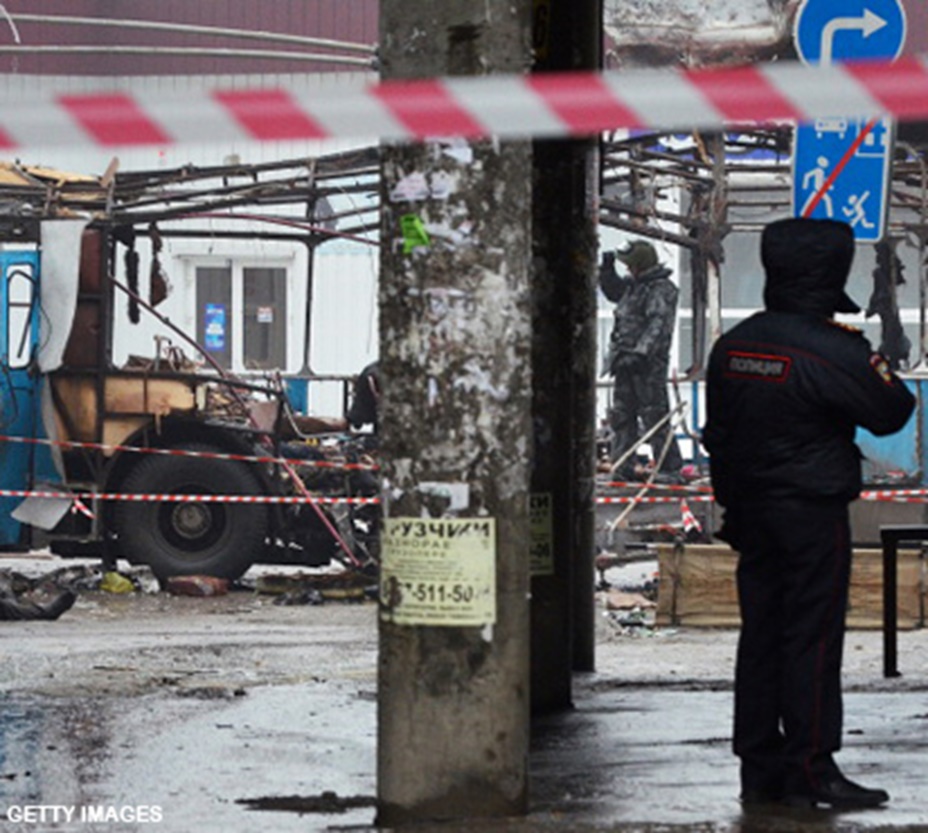Russian Olympic Committee President Alexander Zhukov said on Monday that "no extra security measures would be adopted for the Sochi Olympics despite two apparent terrorist attacks in Volgograd" in the last two days, according to R-SPORT. Zhukov's "words are the first time since the attacks that a top-ranking Russian official has addressed renewed concerns" that the Feb. 7-21 Olympics "could be targeted." Zhukov: "Concerning the Olympic Games in Sochi, all necessary security measures are provided for, and extra security measures in light of the act of terrorism in Volgograd will not be taken, because everything needed is done." A bomb explosion on a trolleybus in Volgograd on Monday morning "killed at least 12 people, less than 24 hours after 17 were killed in an apparently similar attack at the city's railway station." Zhukov also said that the measures "would pale in comparison with the London 2012 Summer Olympics." Zhukov said, "If you remember London, on the roofs of houses there were snipers and rocket complexes, despite the protests of the locals. ... There were also military personnel on the streets, but we will not have this" (R-SPORT, 12/30). In London, Ben Rumsby reported IOC President Thomas Bach has "unequivocally backed" Russian President Vladimir Putin to deliver a "safe and secure" Olympics in the "wake of suicide bombings in Russia that have raised fears of copycat terror attacks at Sochi." Bach branded terrorism a "global disease" that "must never be allowed to triumph," sending a "strong message that the IOC would not be cowed" by events 450 miles from Sochi. Bach said, "This is a despicable attack on innocent people and the entire Olympic movement joins me in utterly condemning this cowardly act. Our thoughts are with the loved ones of the victims. The Olympic Games are about bringing people from all backgrounds and beliefs together to overcome our differences in a peaceful way. The many messages of support and solidarity from the international community make me confident that this message will also be delivered by the Olympic Winter Games in Sochi." The bomb "used on Monday was packed with 'identical' shrapnel to that in the rail station, indicating they may have been made in the same place and supporting suspicions the bombings were linked" (TELEGRAPH, 12/30).
NO GUARANTEES: The FINANCIAL TIMES' Kathrin Hille reported terrorism experts said that the two "deadly bomb blasts in Volgograd within 24 hours have succeeded in shattering Russia's confidence that a massive security operation" can guarantee a safe Games. London-based IHS Country Risk analyst Matthew Clements said, "The very, very tight security in and around Sochi has created a very difficult operating environment for anyone aiming to target the Olympic venues themselves, but the Volgograd attacks illustrate that it is impossible to protect softer targets in the region around them." Through a "new law, the government created a security zone 100km long and 40km wide, which only visitors with games-related documents will be able to enter." Being "deployed there are 25,000 police officers and 8,000 personnel from other security agencies, backed by up to 30,000 military personnel, creating a total security staff of more than double that for the London Olympics." Security consultancy firm Jane's indicated that the London Games, where "more athletes and visitors needed to be protected, used 12,000 police and 18,000 troops." But "experts warn that this effort, while making Sochi a tougher target, is also displacing the threat." New York University transnational crime expert Mark Galeotti wrote in a blog post, "When resources are finite (and they are), then that effort must be at the expense of somewhere else. While we can’t rule out attacks in the major cities of European Russia, so far we are seeing the shift of the target area north and west, into the rest of the Southern Federal District" (FT, 12/30). Bruce Hoffman of Georgetown University's School of Foreign Service said, "No Olympics in recent memory will commence as inauspiciously at the 2014 Sochi Games. Although fear of terrorist attack has been a staple of Olympics security for the past four decades, the back-to-back blasts yesterday and today, coupled with another attack in the same city in October, are likely intended to be the opening salvos in a sustained terrorist campaign. This would be unprecedented in Olympic history and likely reflects the perpetrators' intention to disrupt the Games even before the opening ceremony" (FOX NEWS, 12/30).
U.S. CONCERN: The U.S. government is "concerned Islamist militants may be preparing attacks aimed at disrupting" the Winter Olympics and is "offering closer cooperation on security with Russia despite strains earlier this year." A U.S. official said, "There are clearly sensitivities in our relationship with Moscow but enhancing Olympic security and counterterrorism efforts more broadly are areas of clear mutual interest. The Volgograd bombings underscore the threat and the need to work hand in hand with Russia in order to ensure the protection of U.S. citizens participating in and attending the games in Sochi" (REUTERS, 12/30).
OLYMPICS ARE 'NATIONALIST STUNTS': In London, Simon Jenkins opined the bomb blasts "remind us that modern Olympiads are nationalist stunts first, and sports events second." Each one is "more expensive and more politicised than the last, therefore becoming a magnet for enemies of the relevant state." Rio de Janeiro, which will host the 2014 World Cup and 2016 Olympics, has "led ordinary Brazilians to revolt at the appalling cost." Sochi, close to "Russia's enemies in the Caucasus, is a sitting target for those eager to rain on Putin's parade." Sensible countries "should de-escalate these events or boycott them." They are "staged by corrupt international sporting bodies who feast on them and have no care for the cities and peoples they impoverish." The Olympics should either "return to their origins in sport, using existing facilities and more limited range of disciplines, or leave each sport to organise its own world championships." The Sochi way is "madness" (GUARDIAN, 12/30).




